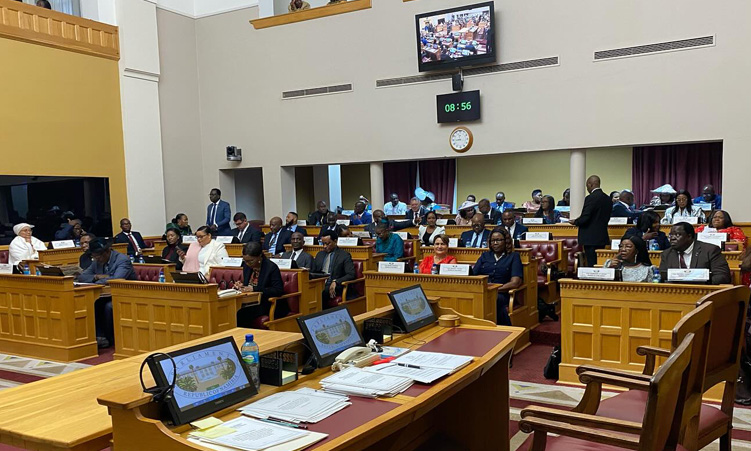THE United Nations World Food Programme (WFP) has begun delivering food supplies to 6 000 refugees and asylum seekers at the Osire camp after receiving US$380 000 (N$2,7 million) from the UN’s Central Emergency Response Fund (CERF).
The WFP is responsible for providing a full monthly food aid ration to all the inhabitants of Osire, which houses around 4 700 Angolans along with hundreds of people from the Democratic Republic of Congo, Rwanda, Burundi and other African countries. “As conditions in their home countries improve, it is becoming increasingly difficult to attract funding to support these refugees, many of whom remain entirely dependent on our assistance,” said John Prout, WFP Country Director for Namibia.”Hopefully, a lasting solution can soon be found but until then, WFP’s food aid will remain absolutely critical.”The CERF was established by the UN system and donors in March 2006 with the objective of assisting the UN to respond in a timely manner to sudden crises, but also to provide essential funding for chronic under funded and ‘forgotten’ operations.”The CERF funds are pretty much a last resort for us and will only ensure that WFP has sufficient food supplies for the refugees until March 2008, but the programme is to run until the end of next year,” said Prout.”We are urging donors to remember the plight of the Osire refugees and to consider contributing additional funds.”WFP still needs another N$4,2 million (US$600 000) to fund its refugee operations at Osire until the end of 2008.WFP provided food aid to refugees in Namibia seven years ago when over 20 000 people fled across the border following a major upsurge of fighting in Angola.The number of refugees fell after the end of the Angolan civil war in 2002 but thousands are still unwilling to return there voluntarily.WFP’s refugee feeding programme is conducted in conjunction with the Ministry of Home Affairs and Immigration and the United Nations High Commissioner for Refugees.”As conditions in their home countries improve, it is becoming increasingly difficult to attract funding to support these refugees, many of whom remain entirely dependent on our assistance,” said John Prout, WFP Country Director for Namibia.”Hopefully, a lasting solution can soon be found but until then, WFP’s food aid will remain absolutely critical.”The CERF was established by the UN system and donors in March 2006 with the objective of assisting the UN to respond in a timely manner to sudden crises, but also to provide essential funding for chronic under funded and ‘forgotten’ operations.”The CERF funds are pretty much a last resort for us and will only ensure that WFP has sufficient food supplies for the refugees until March 2008, but the programme is to run until the end of next year,” said Prout.”We are urging donors to remember the plight of the Osire refugees and to consider contributing additional funds.”WFP still needs another N$4,2 million (US$600 000) to fund its refugee operations at Osire until the end of 2008.WFP provided food aid to refugees in Namibia seven years ago when over 20 000 people fled across the border following a major upsurge of fighting in Angola.The number of refugees fell after the end of the Angolan civil war in 2002 but thousands are still unwilling to return there voluntarily.WFP’s refugee feeding programme is conducted in conjunction with the Ministry of Home Affairs and Immigration and the United Nations High Commissioner for Refugees.
Stay informed with The Namibian – your source for credible journalism. Get in-depth reporting and opinions for
only N$85 a month. Invest in journalism, invest in democracy –
Subscribe Now!










